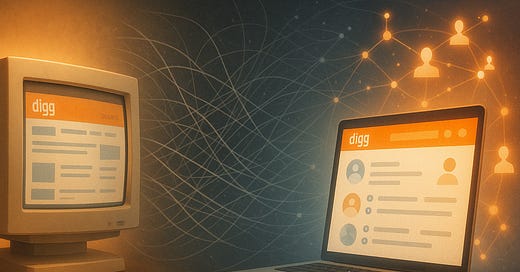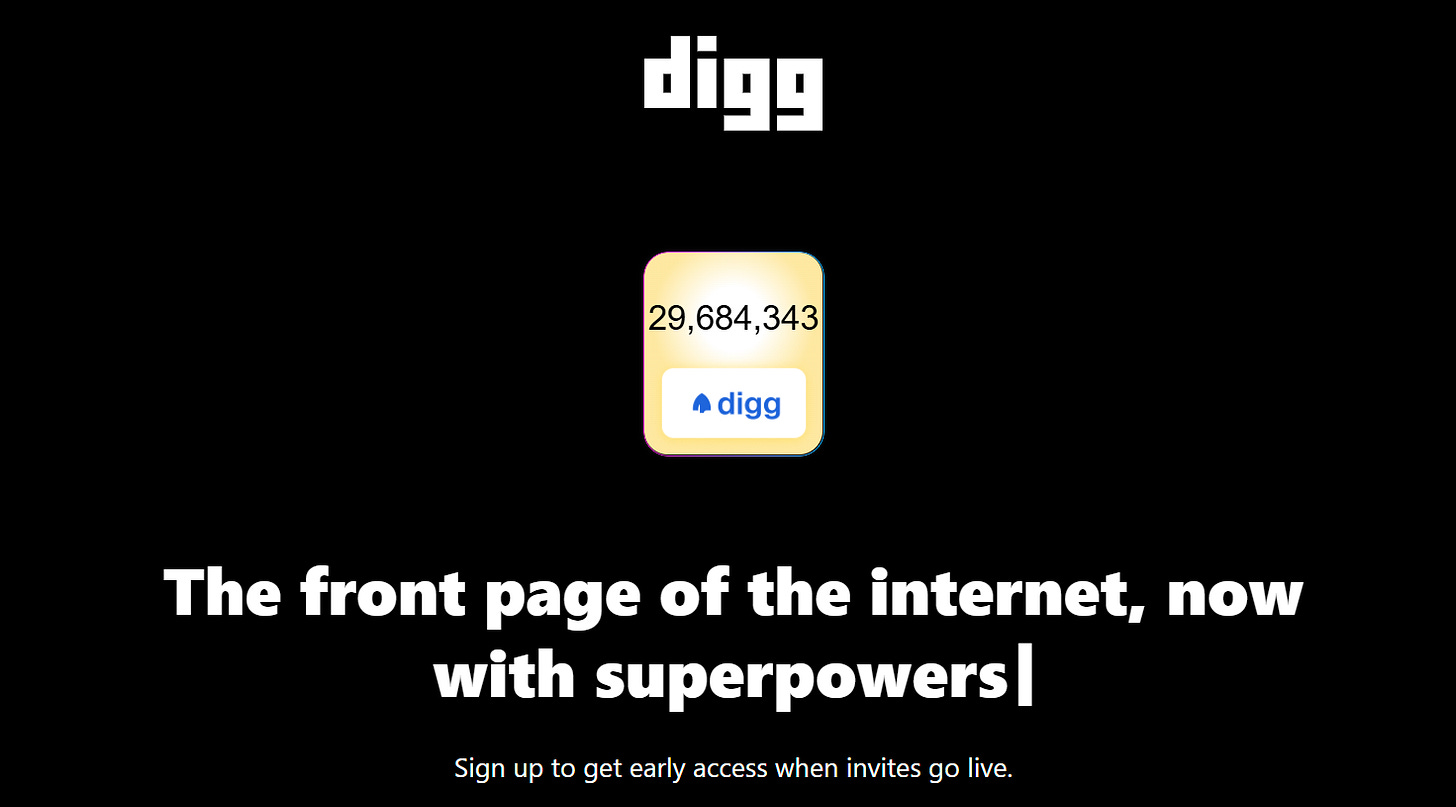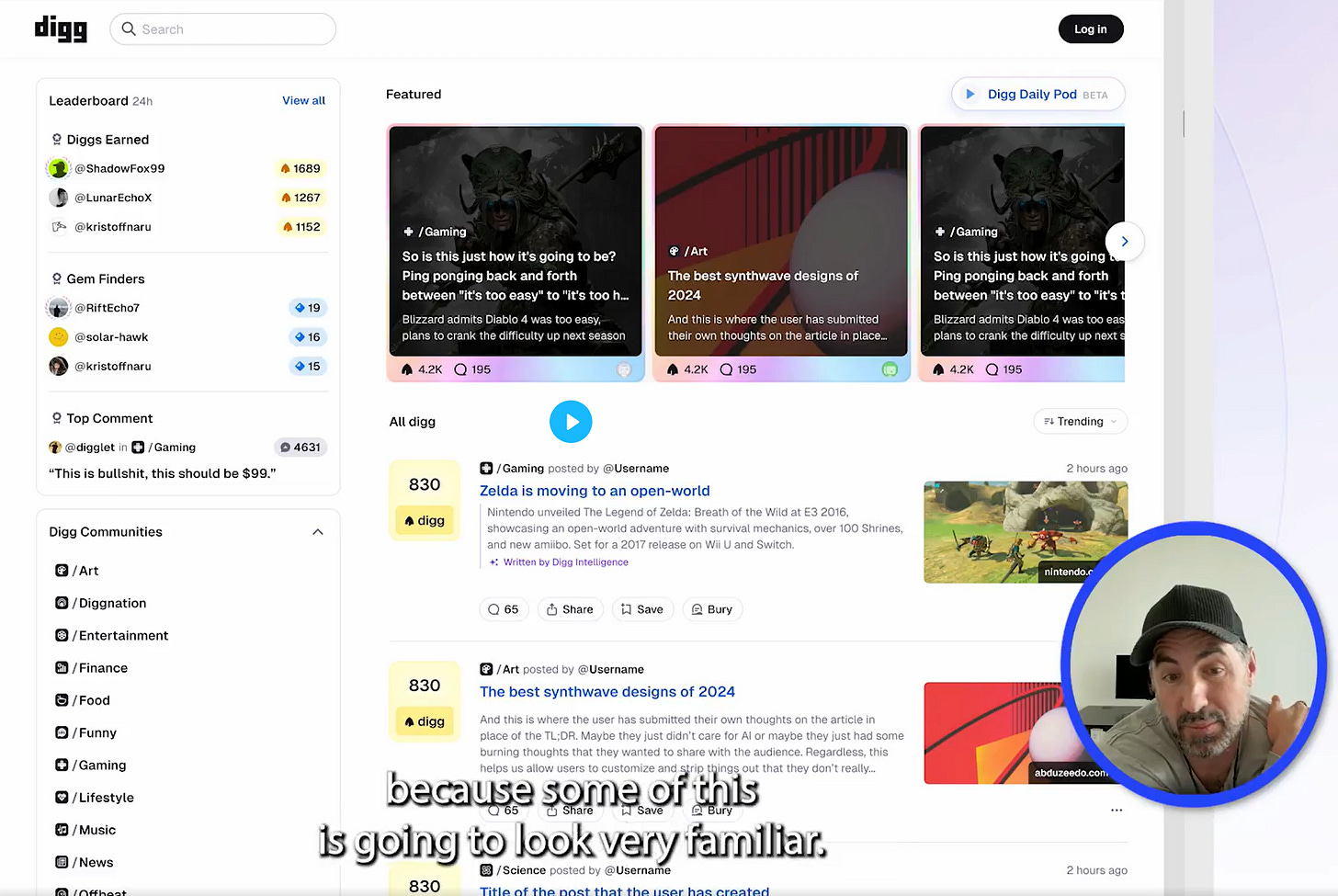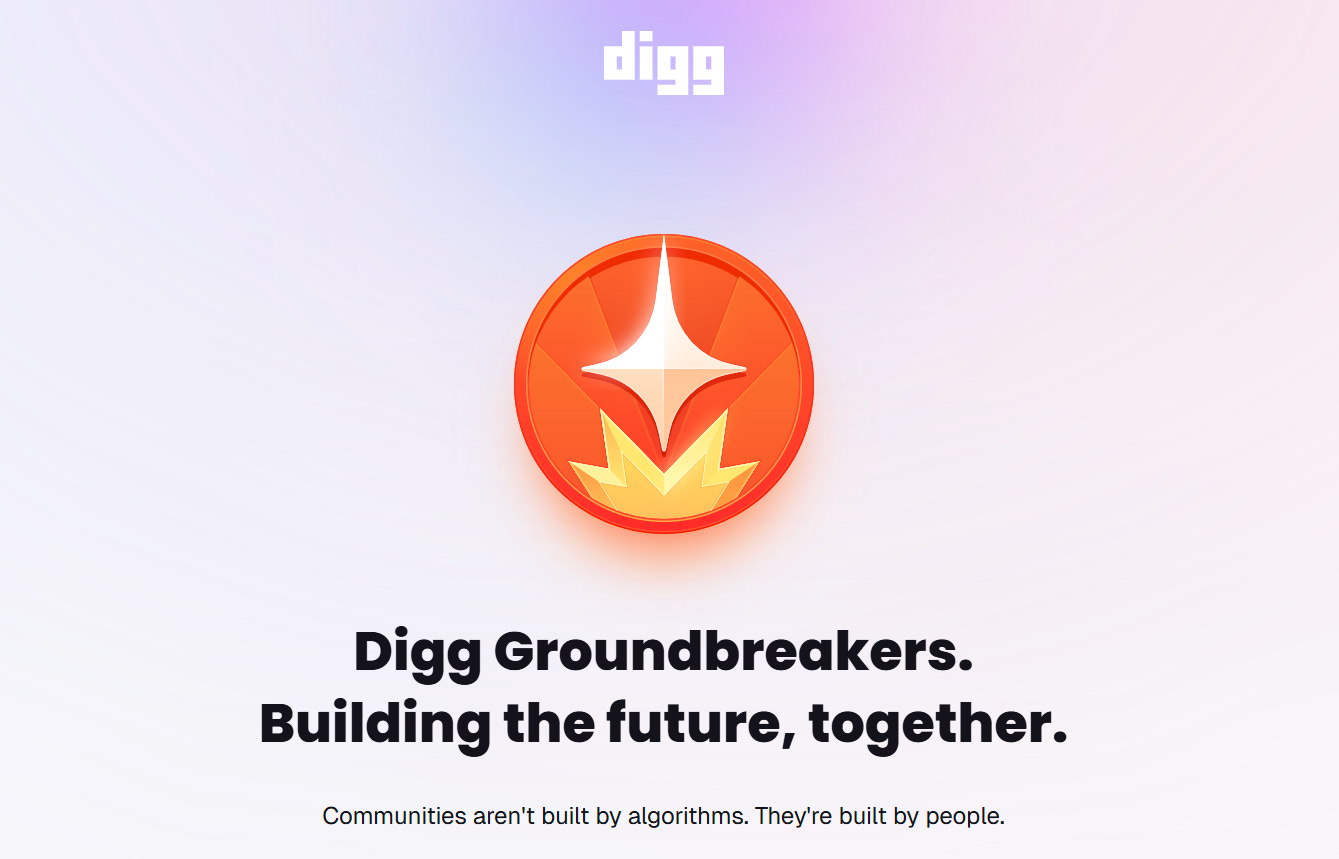Digg is back. Here’s why it might stick this time.
Twenty years after its debut, the original social news pioneer wants to reclaim the internet with less doomscrolling and more discovery.
Are you tired of the endless scroll? Is social media noisier these days? You're not alone. Many of us are feeling disconnected despite being constantly 'plugged in.' This isn't just a minor annoyance — it's changing how we interact online and feel.
But what if there was a different way? A comeback from an old player might offer some clues.
Enter Digg, a name you might not recognize or haven't thought about in two decades. But its return isn't just a trip down memory lane. It's a fascinating attempt to tackle the issues that make today's internet feel broken, drawing on lessons learned from history and the potential of new technologies like AI.
The original rivalry — and a hard lesson
Digg, which was founded by Kevin Rose of Tech TV fame in 2004, was kind of a pioneer. It nailed that simple idea: users vote on links, and the best stuff floats to the top. It felt democratic, even exciting.
For a while, it was the go-to platform for staying up-to-date on online trends, attracting around 40 million monthly users at its peak. Meanwhile, Reddit, co-founded by Alexis Ohanian and Steve Huffman a year later in 2005, was building something similar but with a slightly different vibe, focusing on those distinct community pockets we now know as subreddits.
They were rivals, absolutely. However, things took a dramatic turn in 2010. Digg rolled out version 4 (also known as "V4"), and to many, it felt like the company had ripped the rug out from under their users. They changed how voting worked, favored big publishers over the community's picks, and generally broke the feeling of what made Digg, well, Digg.
People were unhappy, and the site lost 30% of its users in a single month. And where did a lot of them go? Straight to Reddit, which saw its traffic grow by 230% in 2010. Digg never bounced back and was eventually sold in pieces in 2012. It was a harsh lesson in listening to your community.
Fast forward to today. We're swimming in social media, yet how often do you feel genuinely connected? Or like you're discovering something new and cool, rather than just being shown what the algorithm thinks you want to see? It feels like something's been lost, right?
Well, Digg is coming back, and I’m actually pretty bullish on it.
In a twist that feels like it’s ready for its own HBO Max mini-series, it's being brought back by Kevin Rose and Alexis Ohanian, the guys from opposing sides of that original rivalry. They announced in March that they had reacquired Digg, and their plan is to reboot it for the current era, leaning into AI.
Their stated mission hits on exactly what many people feel is missing: bringing back a platform focused on "humanity and connection." Justin Mezzell, Digg's new CEO, put it: "It feels really difficult to connect. I think the platforms have gotten more disconnected." That sounds about right.
AI, gems, and a new approach
So, what does Digg 2.0 look like? They're keeping the core idea – you can still "Digg" content you like and "bury" stuff you don't, putting that curation power back in the community's hands. It sounds like a refreshing change from passively scrolling whatever gets fed to you.
However, the company notes that the key difference for Digg this time is AI. They're not using it to boost engagement numbers. The idea is for AI to be a helpful assistant, fighting the spam and toxicity that makes so many platforms unbearable today, freeing up human communities to actually be communities.
This frees up human moderators to focus on the real work of building culture and guiding conversations within specific communities. They say it’s about using AI to support human interaction, not replace it. Kevin Rose even provided an example of AI potentially allowing a community to view content in Klingon. Okay, maybe that's just for fun, but it shows they think differently about AI's role.
And to combat the feeling that you only see what the algorithm wants, they're introducing 'gems' to reward people who find genuinely cool stuff early before it blows up – bringing back that feeling of discovery that's often missing now. This gamified system encourages users to seek out and elevate meaningful content before it goes viral.
They have also launched a Groundbreakers program to build a community using the Circle app before its official launch, although it initially crashed due to overwhelming demand. This program is designed to give early adopters the opportunity to participate in the platform's development and be part of its initial community. '
For a one-time $5 fee, you can secure your preferred username early, gain a behind-the-scenes look at how the platform is built, and earn a permanent badge on your profile. They say the fee is intended to keep bots out, and the proceeds are going to a community-chosen nonprofit. It's an effort to build a dedicated early community and generate buzz (some would say like a Substack post), but, again, it has had its growing pains.
The perfect storm for success?
Can Digg actually make a dent this time? It's competitive out there in the social media world right now, but I think there are a few things working in their favor:
That nostalgia hit: Yes, the Digg name brings back memories for some of us. But it's not just the name; it's the feeling of that earlier, community-driven web. They might hook people looking for something different if they can capture that spirit with modern tools.
Curation is in again: We're tired of the firehose. We're actively seeking out curated newsletters, smaller online communities, and places where people, not just algorithms, filter out the good content. Digg's core model fits perfectly into this trend.
AI with a purpose: Instead of AI feeling creepy or manipulative, Digg is pitching it as a tool to make the community better and the moderators’ job easier. That's a narrative that could resonate right now.
The Rose/Ohanian factor: These two guys lived the rivalry. They saw what worked and what failed, both at Digg and Reddit. That combined experience, understanding of the community at scale, and the pitfalls of platform changes give them a unique perspective.
This week, the company showcased its new homepage to its Groundbreakers community through a video drop. I watched it, and while it was created in Figma for the video, they said the team has it up and running on a live site, so it should look the same. The nostalgic vibes were real, and I was excited to play with it myself.
Bringing back Digg feels like more than just a retro project. It feels like a direct challenge to the current state of social media, an attempt to say, "Hey, remember when the internet felt more human? Let's try to build that again, but smarter this time." They're learning from past mistakes (V4 was a textbook example of how not to change things) and trying to use technology to enhance connection, not just engagement stats.
As they start rolling out invites and the platform takes shape in the coming weeks and months, the big question for me is: Are enough people feeling that same disconnect from current platforms? Are we ready to try a different approach, to actually "digg" for content and community again? I want to see if they can pull it off.







